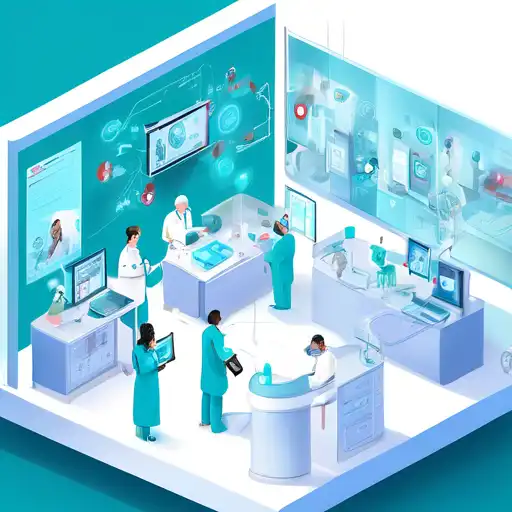Introduction to IoT in Healthcare
The Internet of Things (IoT) is revolutionizing the healthcare industry by enabling smarter, more efficient, and more personalized patient care. By connecting devices, systems, and services, IoT is paving the way for innovative healthcare solutions that improve patient outcomes and streamline operations.
Key Benefits of IoT in Healthcare
IoT technology offers numerous advantages in healthcare, including:
- Enhanced patient monitoring through wearable devices
- Improved accuracy in diagnostics with smart sensors
- Streamlined hospital operations with automated systems
- Better patient engagement and satisfaction
Examples of IoT in Healthcare
Several real-world applications demonstrate the impact of IoT on healthcare services:
- Remote patient monitoring devices that track vital signs in real-time
- Smart pills that monitor medication adherence
- IoT-enabled hospital beds that adjust automatically to patient needs
- Wearable fitness trackers that encourage healthy lifestyle choices
Challenges and Considerations
Despite its benefits, the integration of IoT in healthcare comes with challenges such as data security, privacy concerns, and the need for robust infrastructure. Addressing these issues is crucial for maximizing the potential of IoT in healthcare.
Future of IoT in Healthcare
The future of IoT in healthcare looks promising, with advancements in AI and machine learning further enhancing the capabilities of IoT devices. As technology evolves, we can expect even more innovative solutions that will transform patient care and healthcare services.
For more insights into how technology is shaping the future of healthcare, explore our articles on Digital Health and Smart Devices.
Conclusion
IoT is undeniably improving healthcare services by making them more accessible, efficient, and personalized. As the technology continues to advance, its role in healthcare will only grow, offering new opportunities to enhance patient care and operational efficiency.
